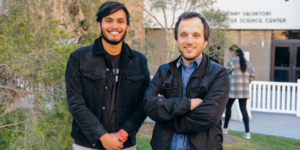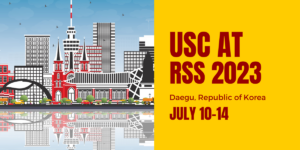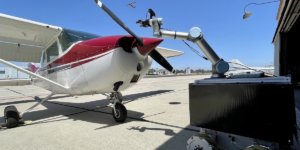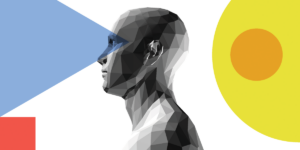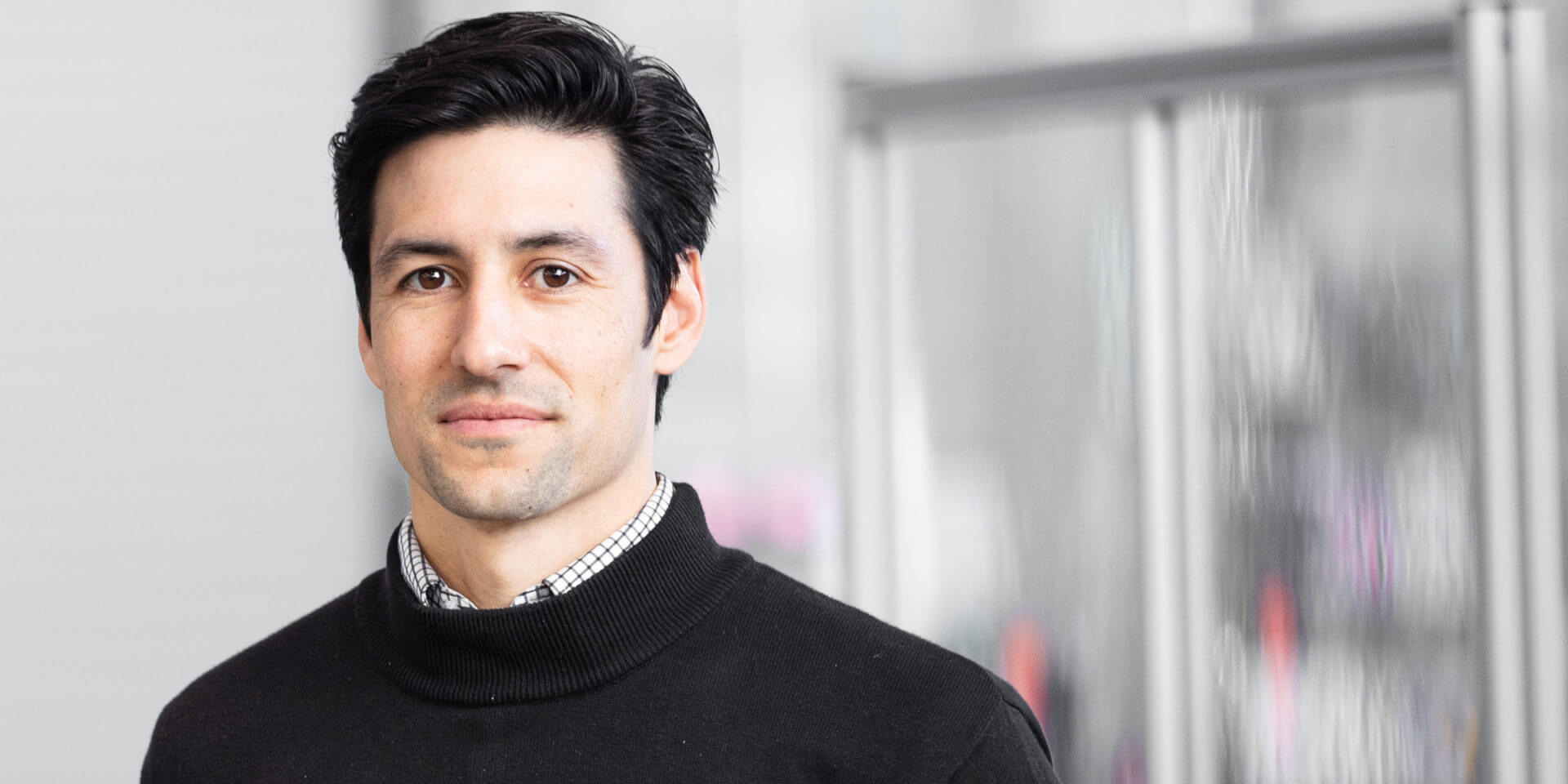
Max Reynolds, CEO of Symbio, is making waves in the automation industry. Photo credit: Symbio
In 1901, Henry Ford invented the assembly line. A simple concept — a machine moving the product while workers attached each part — made automobiles accessible to the entire American population and forever revolutionized the field of manufacturing.
In the over one hundred years since, the assembly line has barely changed. Despite incredible advancements in technology, workers across America still sit on assembly lines performing menial, repetitive tasks.
Max Reynolds has set out to change that.
Symbio, the company he founded in 2014, works with manufacturers to apply its software and adaptive industrial robotics to increase factory efficiency through automation. While robots are heavily utilized throughout the manufacturing process in America, less than five percent of the final step — the final assembly — is automated. Robots excel at performing simple, repetitive tasks, so they can have trouble dealing with the inconsistencies and defects that appear on an assembly line. To Reynolds, however, that just means there is more room for innovation.
“Many engineers have tried to tell me, ‘Manufacturing is a solved problem,’” says Reynolds, who graduated from Viterbi with a B.S. in Mechanical Engineering in 2014. “But the reality is, it is the biggest market out there for automation, and thus has the biggest problems.”
“Symbio is a product-focused company focusing on solving real pain points in the manufacturing industry,” he explains.
Reynolds fostered a love for math and physics from a young age. After being introduced to robotics by an AP Physics teacher in high school, he joined his high school’s FIRST Robotics team, eventually becoming the captain. From there, he was intrigued by mechanical engineering’s wide range of tangible applications.
His father worked at USC, and he grew up attending football games each weekend. For him, attending USC Viterbi and studying mechanical engineering was a no-brainer.
Reynolds credits the robust academic experience of Viterbi and mentorship from faculty members for giving him insight to both the academic and industry sides of engineering.
On campus, he was involved in Engineers without Borders and the Formula SAE Design team, and undergraduate research in Dr. Andrea Armani’s lab, granting him hands-on experience alongside his coursework. During his summers, he worked at Northrop Grumman, helping to design their F-18 fighter planes.
“Among the students in my Engineering Academy section, Max stood out from day 1,” said Dr. Armani, Ray Irani Chair in Chemical Engineering and Materials Science.
“Sitting in the front row, he was a very active contributor to all of the in-class projects. This creativity carried over into his research position in my lab. By the time he graduated, he had explored both modeling and experimental work across a range of fields.”
He began a PhD at UC Berkeley after graduation, but was struck by the wide disconnect between contemporary academic research and the real-world problems faced in industry. Soon after, he dropped out and founded Symbio.
Symbio works using the power of artificial intelligence. One of the main barriers to automated assembly is the difficulty of placing a new part on a moving target. Reynolds adapted computer vision technology models to the factory setting, and then used machine learning to train them to perform the correct tasks. This application is well-suited for the automotive industry since much of the work involves repetitive movements where robots can easily and safely assist.
Symbio works with most of the leading automotive manufacturers. Recently, the company successfully completed a large project overhauling the assembly process at Ford. The legendary company that invented the assembly line was brought into the 21st century by Reynolds’s team.
The company has been so universally successful due to Reynolds’s philosophy of innovating not only the product itself, but the entire process of implementing it. By improving the user experience of working with AI, the manufacturing process becomes easier and more efficient for the engineers who oversee it.
Now that they’ve revved up the automotive industry, what’s next for Symbio?
According to Reynolds, anything.
The regulations of the automotive industry are so rigorous that adapting Symbio’s technology to other fields will be a piece of cake in comparison. Reynolds wants to apply the technology to aerospace, electronics, and even construction.
“Success in the automotive industry is like a stamp of approval that is valid anywhere,” says Reynolds. “Symbio has use cases we can’t even imagine right now. Eventually, we want to assemble anything.”
Published on January 24th, 2022
Last updated on January 24th, 2022




